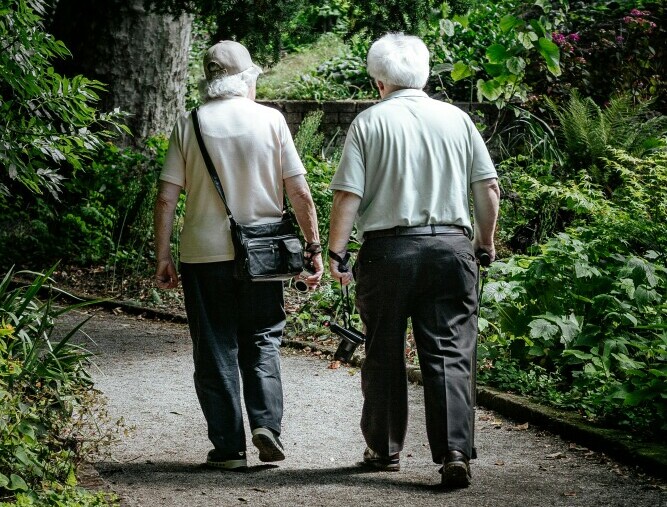
When it comes to caring for the elderly, we often focus on their physical health, ensuring they have the right medications, attend doctor’s appointments, and manage chronic conditions. But there’s more to wellbeing than just that. I’m going to introduce you to the wide-reaching benefits of holistic care. This approach doesn’t just address the physical needs of older adults; it encompasses mental, emotional, and social health, too.
Different types of holistic care treatments are gaining recognition for their power to improve the quality of life for the elderly. Meditation, for example, isn’t only a quiet reprieve; it’s an excellent way for seniors grappling with stress and anxiety to find peace. Tailoring such methods to an individual’s needs promises a stronger and more resilient aging process.
Now owning a pet isn’t just about the joy of companionship; it is also about significant health benefits. Interaction with pets can lower blood pressure, relieve loneliness, and spur physical activity. Their presence can nourish both the mind and body in ways that traditional medicine sometimes falls short.
Now, consider the soothing touch of massage therapy. For the elderly, this goes beyond a moment of relaxation. It’s a holistic treatment that can improve circulation, reduce pain, and decrease stress. Blending these various holistic methods can lead to a more fulfilled and balanced lifestyle for our seniors.
Physical Engagement and Mental Stimulation for Aging Gracefully

Let’s talk about how crucial it is for seniors to keep moving. Staying physically active is not only about keeping fit; it’s also about supporting your immune system. A strong immune system is like a shield against illnesses, and for seniors, whose defenses can weaken with age, this shield becomes even more critical.
Low-impact activities that are senior-friendly include walking, swimming, cycling, and Tai Chi. These activities are ideal because they don’t put too much stress on the body, but they keep you active and engaged. Moreover, the gentle movements of Tai Chi can improve balance and prevent falls, a common concern among the elderly.
In my opinion, a stimulated mind is just as important as an active body. As we age, our cognitive functions may take a hit, leading to worries about conditions like dementia or Alzheimer’s. But here’s some good news: engaging your brain can help maintain its sharpness. Activities like playing musical instruments, solving puzzles, or indulging in a spirited game of chess can be both entertaining and mentally stimulating.
Now what is a big mental challenger? Reading, for sure. Diving into a good book not only transports you to another world but also keeps your brain working, deciphering words and following storylines. This isn’t just about knowledge; it’s also about keeping the mind agile and ready to learn new things.
Nutritional Support and Supplemental Care for Senior Health

If you want to maintain vitality as you age, how you fuel your body is so important it’s all about finding a balance that works for your body and your lifestyle. A healthy diet rich in fruits, vegetables, and whole foods, not only provides essential nutrients but also acts as the foundation for a robust immune system. These are the building blocks that can help fend off diseases, manage weight, and even prevent the development of cancer.
I want to inform you of the components that are often recommended for seniors. Calcium is the cornerstone for strong bones, which is critical as bones become more fragile with age. Vitamin D is equally important, assisting with calcium absorption and bolstering bone health. Vitamin B6 and B12 can be vital too; they play a role in nerve function and energy production.
Now, also remember this: supplements should complement your diet, not replace it. And it’s crucial to have a chat with your doctor about which ones suit you best. Whether it’s in pill, powder, or liquid form, the right supplements can bridge any nutritional gaps. A well-rounded diet, limited alcohol, no tobacco, and the right supplements form a solid foundation for a bright and energetic sunset phase.
Always remember that your nutritional choices today can define your health for years to come.
Lifestyle Practices to Fortify Longevity and Preventive Health

Now let’s talk about some game-changing habits that can drastically improve the quality of life for us seniors. It’s not just about dodging illnesses, it’s also about thriving in your later years.
Remember when washing your hands seemed so mundane? Yet, that simple act is essential against disease, especially in the era of COVID-19. Using warm water, soap, and a solid 20-second scrub, you’re not just washing away dirt, you’re guarding a whole community against viruses, which can linger on surfaces for a day.
Don’t fret about hand sanitizer either. When you can’t get to a sink, a good pump or spray of sanitizer is a powerful ally. And let’s not forget about keeping your home safe too. Frequent disinfection of high-touch areas will serve as an extra shield.
Stress might as well be a heavyweight champ; it’s relentless and packs a punch on your health. It can exacerbate conditions like heart disease and hypertension, which you want to avoid. Identifying what gets your heart racing and managing it with techniques that resonate with you is key. A brisk walk, deep breathing, or gardening? Choose something that calms your soul.
I hope that you consider these tips seriously because they can make a monumental difference. Ensuring adequate sleep — yes, 7-9 hours helps your body heal and rejuvenate overnight. Naps aren’t laziness; they’re mini-vacations for your cells. Just keep them under 45 minutes, and they’ll complement, not compete with, your nightly slumber.
Finally, it’s vital to keep current with your medical check-ups. No excuses. Annual physicals and screenings are like traffic lights on your health highway — they keep things flowing safely. Between you and your primary care provider, you can create a preventive care schedule that works for you.
Integrating Holistic Treatments into Routine Elderly Care

Integrating holistic treatments into the daily routine of seniors isn’t just about addressing specific health concerns; it’s about enhancing our overall quality of life. Whether it’s the gentle touch of a massage therapist or the thoughtful guidance of a meditation instructor, each holistic approach plays a crucial role in fostering well-being.
But remember, holistic care is most effective when it’s tailored to the individual’s unique needs, preferences, and medical history. That’s where the expertise of healthcare providers becomes invaluable. Collaborating with doctors, nurses, and caregivers ensures that every aspect of the elderly person’s care plan is finely tuned to provide the utmost benefit.
So, if you’re considering holistic treatments for yourself or an elderly loved one, start by having a conversation with their primary care physician. Discuss the various options and develop a personalized plan that encompasses physical activities, mental exercises, and nutritional support. Think of it as crafting a mosaic of care — each piece, from meditation to dietary supplements, contributes to a larger picture of health and happiness.
Your first step towards integrating holistic treatments doesn’t have to be daunting. Choose something that resonates with you or your loved one, and give it a try. You can always adjust your approach down the road as you see how the benefits unfold. In my opinion, nurturing the elderly holistically is one of the most compassionate and effective ways to honor their/our journey through the golden years.
